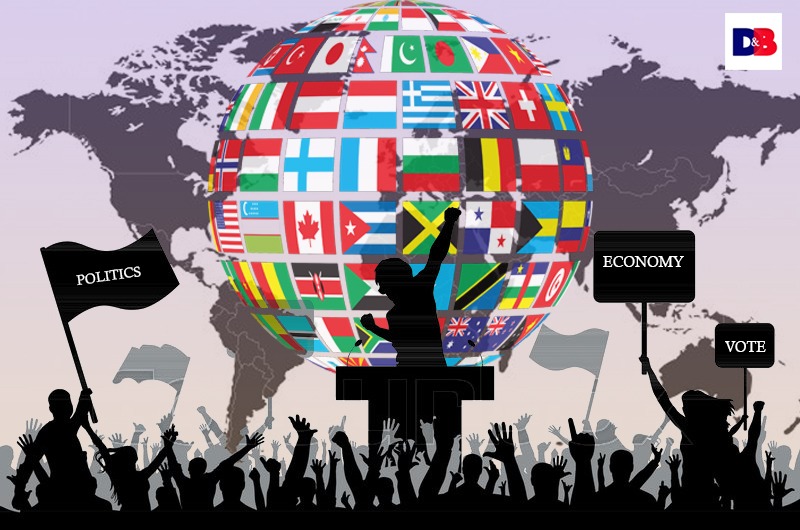The current global landscape is already fraught with multiple challenges, ranging from corruption to trade wars, immigration and migrant issues, armed and civil conflicts, amongst multiple other disputes. Mistrust, institutional failures and mass cynicism has already percolated deep into the world order. The ongoing pandemic only adds to the prevalent corrosion of faith in the national and international organisations.
Human civilization has battled many pandemics in the past. What ties all these events of global health crisis together are the setbacks that were borne by the world in terms of international relations, owing to the amplification of existing challenges and development of new blanketing predicaments.
The 1918-19 Spanish flu epidemic cost the world as many as 50 million lives. It brought about breakthroughs in medicine and altered social relations to some extent, but soon passed the mass memory by. But the mire that the other health crisis had the world engulfed in, has been of a magnitude far greater than sociological reshaping.
On the global front, it reshaped the world by supplementing India’s freedom movement and facilitating the incorporation of castigatory measures for Germany in the Treaty of Versailles as proposed by the U.S. The Mogul Empire came crumbling down in the aftermath of the Black Death, leading to the closure of the Silk Road trade corridor.
Similarly, in a world hitherto ensnared plaintively in economic distresses, border disputes, international humanitarian crisis; torn and battered by wars, environmental stress and resource scarcity, Covid-19 is going to leave behind a monumental legacy to battle with for the pliable world politics and economic order.
If a potent vaccine fails to reach the world for many years, the alterations would be truly profound in the long haul. We would be witnessing a world as novel as the virus, unpredictable, mutating and dangerously cureless. A reshaped economy grappling with depression and debts is not far with the current historical slumps in major world economies.
Thousands of firms and stores that were already vulnerable have been wiped off with the onset of the pandemic. An unprecedented number of colleges have closed their doors for baffled students and staff. Social life has come to a stand still and the act of suspicion has become the virtue in the precarious survival-of-the-fittest game.
Even an asymptomatic person can be a carrier and hence a super-spreader of the virus. A vaccine could mitigate these changes to everyday life and they may not remain permanent, but the contact dependent industries would suffer a severe blow. Restaurants, clubs, movie theatres, sports stadiums and other places of public gatherings will suffer huge losses; with the threat of complete shut-down looming large over many small scale businesses.
The institutional response to the pandemic and handling of the crisis by governments over the world has varied considerably. Countries like the United States, Brazil, Russia, India, amongst others have failed to restore the faith of their people and the world despite desperate mitigation measures.
The superpower status of America is almost in shambles as the Trump administration failed to systematize lockdowns, remained unsuccessful in its local testing endeavor, and spelled disaster by pushing to reopen the economy despite the warnings of the health experts. Barring New Zealand, most of Europe and many East Asuan countries, the economies of other countries continue to crumble under the duress of the pandemic.
Talking about border issues, the pandemic has proved as a validation for the nationalists around the world who had always pressed for making concrete border legislations to keep out foreigners. Globalisation suffers a severe setback as more than 135 nations have added revised as well as fresh border restrictions.
For the first time in 25 years, Europe re-established its internal Schengen area borders and also shut its external ones as well. Countries such as Japan and New Zealand,have literally walled themselves off. These border restrictions are most likely to overstay the pandemic and may make a permanent place in the legislations of these countries in future. The United Nations has urged the nations to partake in greater global cooperation, with its secretary general pushing for a “global ceasefire” among conflicting nations and blocs.
A key result of the pandemic is likely a monumental shift in the United States-China relationship and their interaction with the world at large. Both the countries have suffered significantly in terms of their global reputation and their status quo in the world has apparently weakened in the wake of the Covid-19 crisis. This might work in the favour of a middle-power and open possibility for such a world leadership.
The pandemic will be surely remembered as a more significant game changer in history than any of the prior world transforming events. It will go down in history as the most significant global experience post World War II and the Great Depression and leave behind a formidable legacy.









